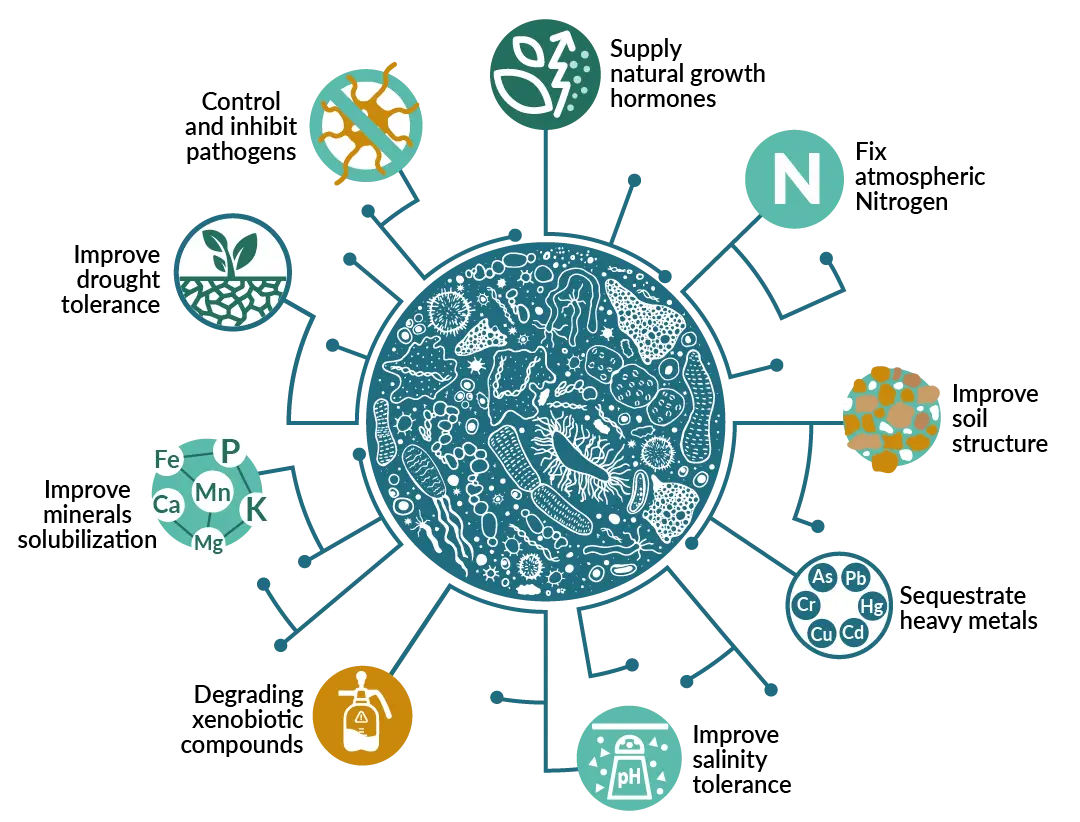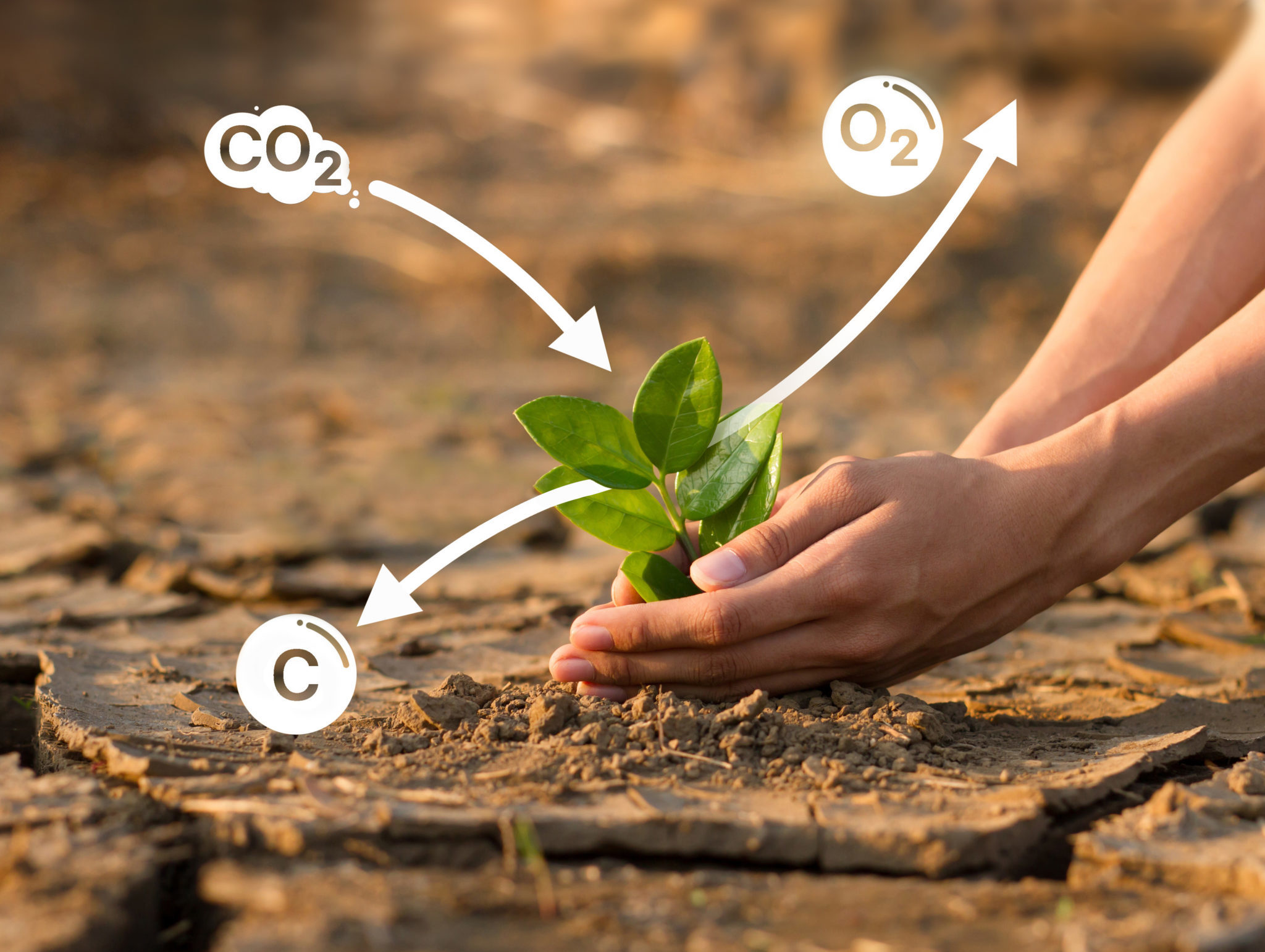
Bacterial Biostimulation
An effective, natural and sustainable solution.

Soil Biological activity
An indicator of the good health of your soil
PGPR Probiotics
PGPR (Plant Growth Promoting Rhizobacteria) are bacteria in the rhizosphere that benefit plant growth and health.
These bacteria have a beneficial effect on the plant via a multitude of mechanisms: they are involved in the mineralization of organic matter, the nitrogen cycle, the availability of phosphorus and also in the regulation of root growth.
Functions of PGPR :

Our approach
Selection of locally adapted bacteria to improve efficiency.
Bacteria, like all living organisms, develop in specific environments. Products containing living organisms must be developed for the soil and climate that correspond to the origin of these micro-organisms. For each region there is a bacterial solution.
Selection of bacterial functions:
Each bacterium has the ability to perform one or more functions. The selection of bacteria according to their functionality allows us to offer general or targeted biostimulant products depending on the problem.
Our R&D work
Our scientific team is currently selecting bacteria and developing bacterial biostimulants in a variety of pedo-climatic zones :

French Guiana

Guadalupe

Reunion Island

Brazil

Peru
The objective: To create a bank of bacterial strains of interest that can respond to the specific cultivation problems of each of these environments.
Analysis of the biological functioning of soils
Our innovative approach is based on the development of procedures for assessing the functional capacity of active soil microbial communities.
These analyses allow us to precisely and quickly understand the resistance and resilience of soils to change or disturbance.
Functions of biological measurements :
Assess the capacity of the soil to perform its functions
Assess its ability to feed crops
Accurately manage the quality and quantity of inputs.
Our approach
Soil is a living entity that is a nutritional resource for plants.
As with all living beings, micro-organisms breathe. We measure the gases released by micro-organisms present in soils to determine the active biomass diversity of the micro-organisms.
These biological measurements enable a rapid evaluation of the capacity of the soil to perform its functions.
Our R&D work
Determining the level of soil quality and recommending methods for restoring it.
Through various research programmes, these analyses have led to the development of tools and methods to improve farming techniques and promote high flow organic practices.
Benefits for the environment
All of these innovations are intended to improve practices in the face of major contemporary environmental challenges.

By trapping CO2:
Our biostimulant products promote plant development and, by extension, carbon storage
By reducing the use of chemical inputs:
The use of chemical fertilisers or pesticides can unbalance the carbon cycle in the soil and harm soil fauna and flora, thus contributing to the depletion of soil organic matter.